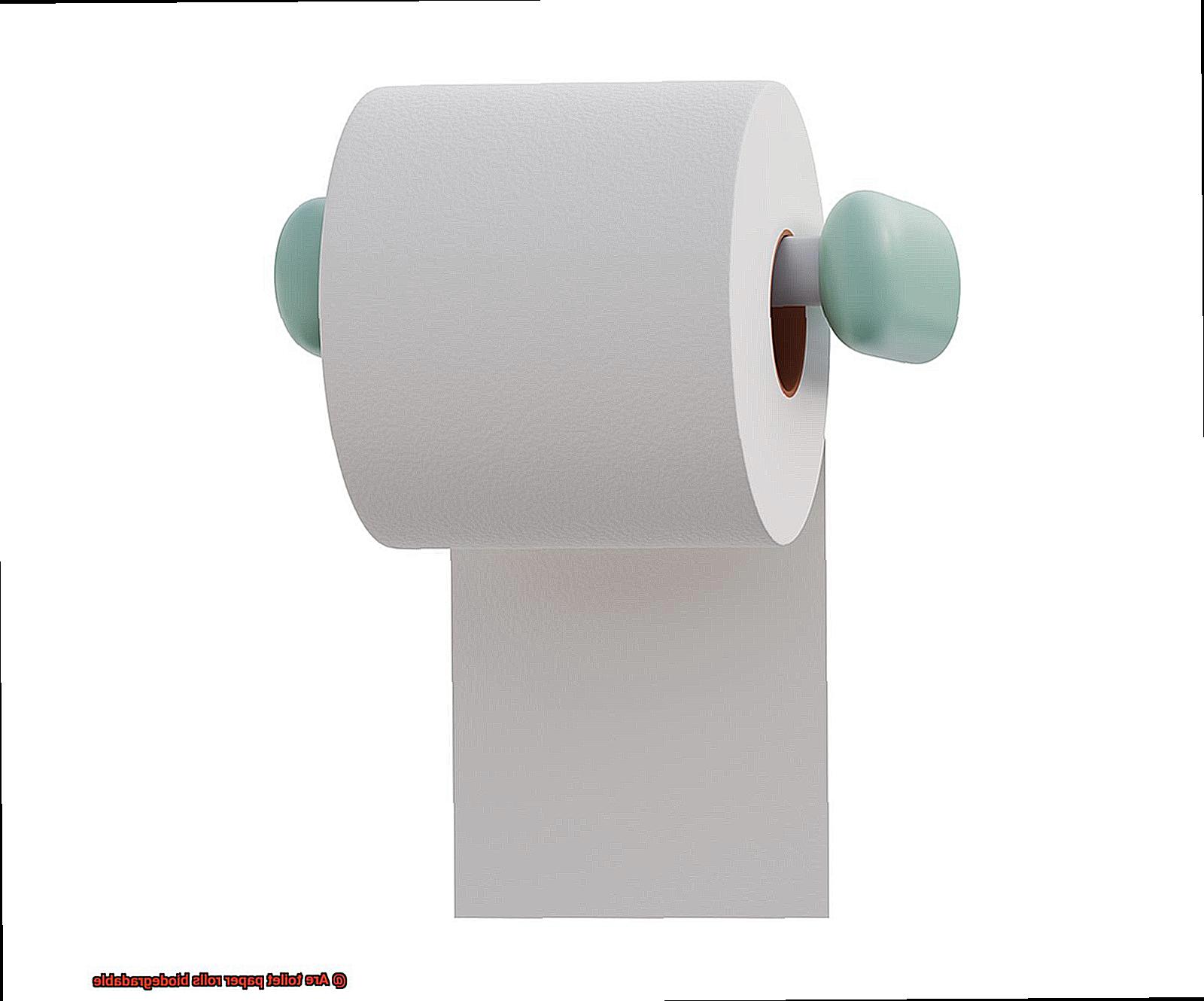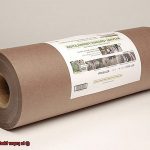Do you ever stop to think about what happens to the cardboard tubes left behind after using up your toilet paper roll? If you’re someone who cares about the environment, then you might have asked yourself this question: Are toilet paper rolls biodegradable?
As an essential household item that we use every day, millions of toilet paper rolls are produced annually. It’s no wonder that people are starting to consider their impact on the environment. The good news is that toilet paper rolls are indeed biodegradable. However, not all rolls are created equal, and the time it takes for them to break down depends on the materials used in their production.
In this blog post, we’ll take a deep dive into the world of biodegradability and explore what makes toilet paper rolls decompose. We’ll examine various materials used in making these rolls and how long they take to break down. Additionally, we’ll discuss why recycling and composting toilet paper rolls is crucial in reducing waste sent to landfills. Lastly, we’ll provide eco-friendly tips on choosing both sustainable toilet paper and packaging.
So let’s get our hands dirty and find out if toilet paper rolls are truly biodegradable.
The Material Used to Construct Toilet Paper Rolls
Contents
Toilet paper rolls may appear to be a mundane item, but the materials used to construct them can greatly impact their biodegradability. Typically, toilet paper rolls are made of recycled paperboard, virgin paper pulp, or a combination of these two materials. Virgin paper pulp is obtained from freshly harvested trees, whereas recycled paperboard is made from recycled paper and cardboard.
Although both of these materials can be biodegradable, the extent of their biodegradability depends on how they are processed and treated. If they are treated with harsh chemicals or coated with synthetic materials, they may not decompose naturally. However, if they are processed using eco-friendly methods and left untreated, they can break down over time.
It’s worth noting that some toilet paper rolls contain plastic or other synthetic materials like glue or ink, which can make them non-biodegradable. Therefore, it’s essential to choose toilet paper rolls that are made from natural and biodegradable materials to reduce waste and protect the environment.
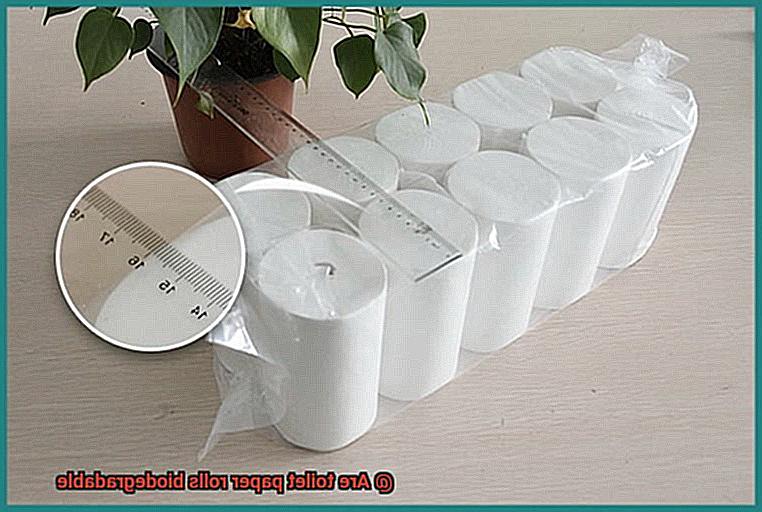
Unfortunately, the glue used in toilet paper rolls often includes synthetic polymers that can take hundreds of years to break down. Similarly, chemicals used during the manufacturing process can also impede the natural biodegradation process. But don’t worry; you can still make a difference.
Choosing eco-friendly options made from natural and biodegradable materials is a great way to help reduce waste and promote proper biodegradation. Moreover, composting your toilet paper rolls is an excellent way to turn them into nutrient-rich soil for gardening and agriculture.
While some may argue that composting is inconvenient, it’s crucial to remember that toilet paper accounts for nearly 26 percent of landfill waste according to the Environmental Protection Agency (EPA). By composting your toilet paper rolls, you’re not only reducing waste but also promoting a more sustainable way of life.
Adhesive and Chemical Treatments
While these treatments may enhance the strength and softness of the paper, they can also make it harder for the paper to break down in the environment.
Think of it like a puzzle – if you try to use glue or tape to fix pieces that don’t fit together, it may hold them in place, but it can also make it harder for them to come apart later on. This is similar to what happens with toilet paper rolls that have been treated with synthetic adhesives. These materials don’t break down easily, which means that when toilet paper rolls end up in landfills, they take a long time to decompose.
Similarly, imagine washing a dirty dish with soap that leaves behind a sticky residue. Even though the dish may look clean, there’s still something left behind that could cause problems later on. This is similar to what happens when toilet paper rolls are treated with chemicals like chlorine bleach or hydrogen peroxide. These chemicals may make the paper softer or whiter, but they can also leave behind harmful residues that don’t break down quickly.
Fortunately, there are solutions. To promote proper biodegradation and reduce waste, opt for natural and biodegradable options like toilet paper made from recycled materials or bamboo. You can also check if your preferred brand of toilet paper is free from synthetic adhesives and harmful chemicals.
Remember, every small choice counts when it comes to protecting our planet. By choosing eco-friendly options, we can help reduce our environmental footprint and ensure a healthier future for all.
The Impact of Landfill Conditions on Biodegradation
The truth is, the environment in which they end up in can significantly impact their ability to biodegrade. Landfills are designed to bury and compress waste, which limits the amount of oxygen, moisture, and sunlight that can penetrate and facilitate biodegradation.
In such an environment, organic matter such as toilet paper rolls may take much longer to break down, and in some cases, not decompose at all. Just like a plant that cannot thrive without the proper conditions of light and water, without the necessary conditions for decomposition, organic matter won’t be able to effectively biodegrade.
The biodegradation process requires microorganisms to break down organic matter into simpler compounds. However, in landfills, the anaerobic conditions slow down or halt the activity of these microorganisms, resulting in slower rates of biodegradation. It’s like trying to complete a group project without any communication – progress will be slow, if not impossible.
Furthermore, landfills often have an impermeable liner at the bottom to prevent hazardous substances from leaching into soil and groundwater. This means that any moisture that reaches the waste is trapped and cannot escape, further hindering the biodegradation process. It’s like trying to cook a meal without any pots or pans – the ingredients won’t be able to mix and cook properly.
Thus, it’s essential to explore alternative ways of disposing of toilet paper rolls, such as composting or recycling, to reduce their environmental impact. As toilet paper rolls may take a considerable amount of time to biodegrade in landfills due to limited access to oxygen and moisture, we need to take action. Let’s make sure that these household items end their journey in a way that is sustainable for our planet.
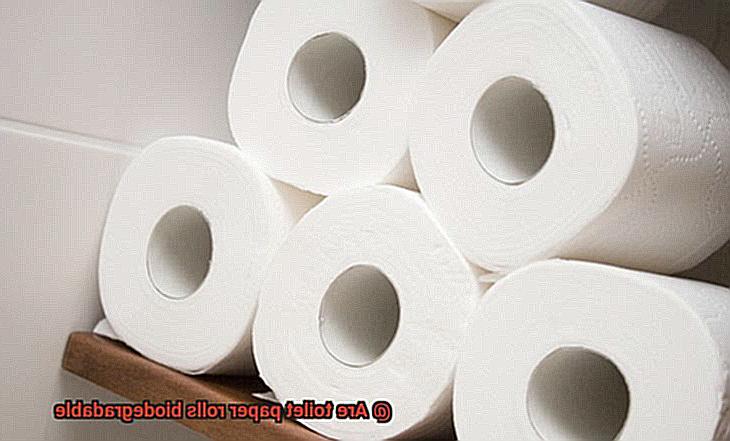
Composting as a Sustainable Solution for Reducing Waste
Composting is an amazing way to dispose of organic waste, and toilet paper rolls are no exception. Instead of adding them to landfills, why not turn them into nutrient-rich soil for your garden?
Toilet paper rolls are made of biodegradable materials such as cardboard or paper, which means they can naturally break down over time without harming the environment. Composting toilet paper rolls is a straightforward process that begins by tearing or cutting them into small pieces to speed up the composting process. Then, you can add them to your compost pile along with other organic materials.
The magic behind composting lies in microorganisms breaking down the organic materials into a usable form. As toilet paper rolls decompose, they become a nutrient-rich soil conditioner or fertilizer that improves soil quality, retains moisture, and helps plants grow stronger and healthier.
Composting is an excellent sustainable solution that benefits not only your garden but also the environment. By composting your toilet paper rolls, you’re reducing waste and contributing to a healthier ecosystem by diverting organic waste from landfills.
So let’s recap. Composting toilet paper rolls contributes to reducing waste and creating nutrient-rich soil for your garden. Plus, it reduces greenhouse gas emissions by diverting organic waste from landfills. It’s straightforward, easy to do, and it helps us move towards a more sustainable future.
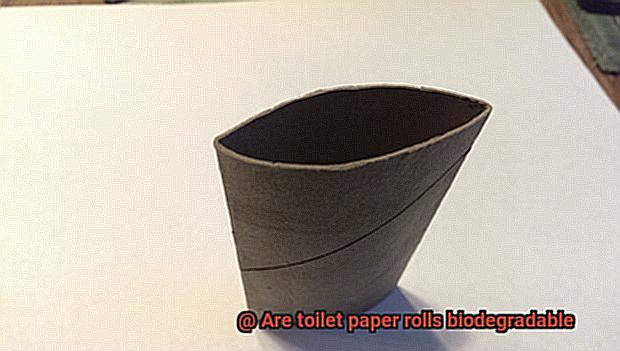
Benefits of Composting Toilet Paper Rolls
Composting your toilet paper rolls may be just the solution you need. Not only does it minimize the amount of waste in landfills, but it also provides numerous benefits for soil health and fertility.
Composting your toilet paper rolls is an excellent way to return nutrients to the soil. Rather than taking up space in a landfill, decomposed rolls become a rich source of organic matter that can enhance soil health and fertility. As a result, composting toilet paper rolls can promote the growth of healthier plants and crops, leading to better yields and more nutritious food.
Furthermore, using composting toilet paper rolls is an eco-friendly alternative to traditional options. Unlike conventional toilet paper, which often contains chemicals and other harmful substances, composting toilet paper rolls are made from natural fibers and materials that are safe for the environment. Moreover, it can reduce the carbon footprint associated with traditional toilet paper production and transportation.
What’s more, composting toilet paper rolls are cost-effective in the long run. While traditional toilet paper may appear cheaper upfront, disposing of it can add up over time. In contrast, composting toilet paper rolls eliminate this cost by allowing users to dispose of them naturally without additional expenses.
t2DKgF4u5Sw” >
Conclusion
Toilet paper rolls are biodegradable, but their level of biodegradability depends on the materials used and where they end up. Toilet paper rolls made from natural and biodegradable materials like recycled paperboard or bamboo break down over time. However, some contain synthetic adhesives or chemicals that hinder the process.
It’s important to choose sustainable toilet paper and packaging options to reduce waste and promote proper biodegradation. Composting toilet paper rolls turns them into nutrient-rich soil for gardening and agriculture while reducing greenhouse gas emissions from organic waste in landfills.
Composting is a fantastic way to dispose of organic materials sustainably, providing numerous benefits for soil health and fertility. By composting your toilet paper rolls, you’re returning nutrients to the soil, promoting healthier plants and crops, reducing your carbon footprint, and eliminating additional expenses associated with traditional disposal methods.
In short, our daily choices impact the environment.
